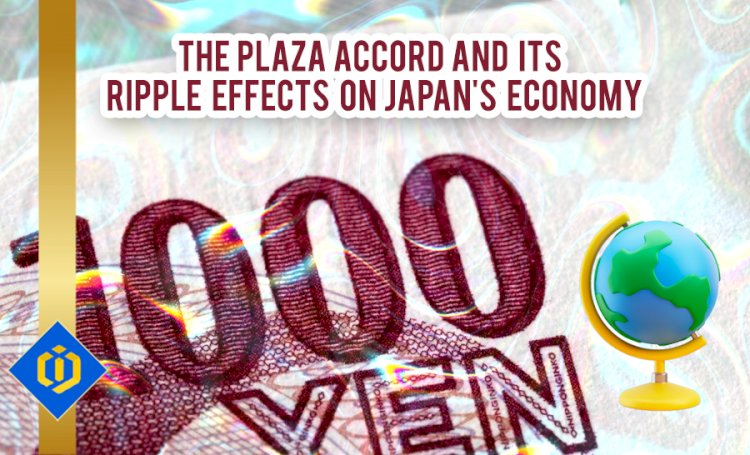How the Plaza Accord Has Shaped the Current Form of Japan's Economy?

The United States, United Kingdom, West Germany, France, and Japan were the G5 countries that signed the Plaza Accord on September 21, 1985. By changing exchange rates and weakening the US dollar, this agreement aimed to address the imbalances in world trade. The result was a sharp increase in the value of the Japanese yen relative to the dollar, which had an immediate impact on Japan's economy and created a number of difficulties.
As Japan's exports became more competitive and valuable on the international market, the yen's appreciation initially appeared to support the country's economy. Long-term effects, however, were less positive than expected. The Bank of Japan significantly lowered interest rates to offset the detrimental effects of yen appreciation on domestic industries. Inadvertently encouraging a surge in investments and speculative activity in the stock and real estate markets, this choice led to a massive asset price bubble that lasted through the late 1980s.
This period of economic euphoria was brief because the bubble burst in the early 1990s, sending asset prices plummeting. Following that, Japan's economy experienced a protracted period of economic stagnation known as the "Lost Decade," during which time it struggled with deflation, slow growth, and rising public debt.
Recovery was a slow and laborious process even though the Japanese government and central bank made numerous attempts to revive the economy through fiscal and monetary policy measures. The Plaza Accord's aftereffects and the ensuing asset bubble's continued to cloud Japan's economic prospects.
However, in the face of these difficulties, the Japanese economy showed remarkable resilience. The nation's emphasis has gradually shifted away from export-driven growth and toward domestic consumption and service industries over time. Investments in infrastructure, renewable energy, and research and development all rose at the same time. By diversifying and strengthening the Japanese economy, these tactical decisions created the foundation for a more secure and sustainable future.
The Plaza Accord and its aftermath serve as a sobering reminder of how international economic agreements and well-intended policy interventions can have unintended and far-reaching consequences. The development of the Japanese economy—from a position of strength to a time of economic turmoil and then to its eventual recovery—offers insightful information about the complex interplay of forces at work in the world economy and the importance of adapting to changing conditions.
Author: Pooyan Ghamari, Swiss Economist

 content-team
content-team 


















